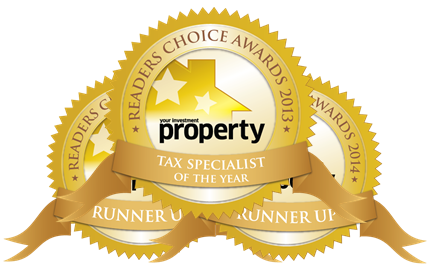By David Shaw. 22/09/2015
 Australian’s generally love investing in property given its track record of achieving good returns over the long term. Many property investors achieve diversification by purchasing properties in different locations around Australia. The more intrepid and adventurous go further afield and purchase properties in other countries such as New Zealand, France, USA or England. For keen investors looking at diversifying their property portfolio with an overseas purchase, there are a number of tax matters that need to be considered.
Australian’s generally love investing in property given its track record of achieving good returns over the long term. Many property investors achieve diversification by purchasing properties in different locations around Australia. The more intrepid and adventurous go further afield and purchase properties in other countries such as New Zealand, France, USA or England. For keen investors looking at diversifying their property portfolio with an overseas purchase, there are a number of tax matters that need to be considered.Under the Australian self-assessment tax system, Australian residents for tax purposes are required to include all income earned from both Australia and overseas in their assessable income when submitting their annual income tax return. Failing to include foreign income is very risky and not recommended. The Australian Taxation Office (ATO) in the last few years has ramped up its pursuit of Australian taxpayers who own overseas investments but have not disclosed income from this source in their income tax returns. The ATO has good working relationships with other country’s tax authorities and data is shared under the various agreements. Their reach is very long so it is worthwhile and recommended to comply with the tax law requirements.
When investing in an overseas property there are a number of questions about tax that need to be addressed including: Where do I pay tax on a net rental income? Do I get taxed in either country or just Australia? Can a foreign net rental loss be offset against other Australian income? What are the tax implications if I sell the property? Are there any tax implications for my estate if I still own the property at death? To answer some of these questions, we are going to use an example to illustrate how it works. Bob, an Australian resident for tax purposes, owns a two bedroom apartment in down town Toulouse, in the south of France. Australia and France have a Double Tax Agreement (DTA) in place outlining the taxing rights on the different types of income.
If Bob’s apartment makes a net rental income for the year of €5,000 EUR, then under the DTA, he is required to pay tax on this income in France. As an Australian tax resident he is also required to include this income in his Australian income tax return. To avoid double taxation, relief is granted through the Foreign Income Tax Offset (FITO). FITO acts to reduce the Australian tax payable on rental income which has already been taxed in another tax jurisdiction.
If Bob’s apartment makes a net rental loss for the year of €2,000 EUR, then this loss can be offset against his other assessable income in his Australian income tax return effectively meaning negativing gearing is achieved on the investment.
If Bob’s apartment is sold after 10 years and makes a capital gain of €50,000 EUR, then this gain would be taxed in France. In his Australian tax return, the 50% of the gain would be included due to the 50% discount and double taxation relief would be available under FITO.
If Bob holds the property until his death, inheritance tax would be payable in France. There is no inheritance tax in Australia, having been abolished in 1979. His estate or beneficiaries may be subject to tax on a subsequent sale.
When the decision is made to purchase an overseas investment property, find a good lawyer, accountant and real estate agent. These professionals will be an asset in ensuring compliance with local laws and regulations. Each country will have different laws regarding property ownership and good advisors can provide exceptional guidance with regards to complex tax issues.

David Shaw is the CEO of WSC Group: Certified Practising Accountants and Business Advisors, and
was voted Property Tax Specialist of the Year in the Your Investment Property 2013 Readers Choice Awards (as well as runner up in 2012 & 2014 ).
*The advice published on social media mediums by WSC Group is of a general nature and does not constitute specific financial advice. For a detailed financial strategy you should consult with a qualified financial advisor before making any investment decision.
Disclaimer: while due care is taken, the viewpoints expressed by contributors/sponsors do not necessarily reflect the opinions of Your Investment Property.
